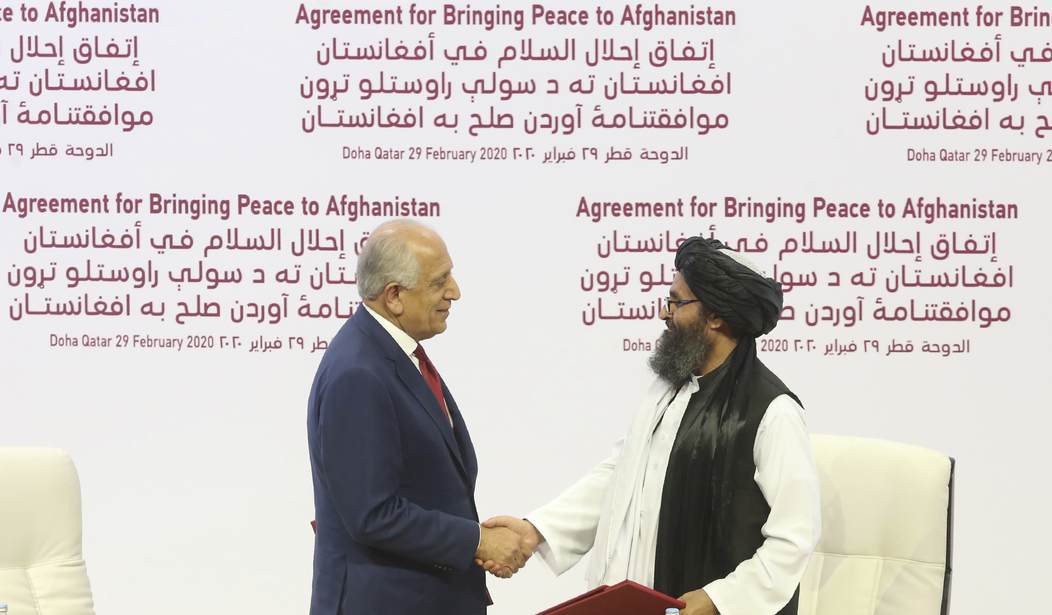The United States and the Taliban on Saturday signed an agreement which sets the stage for American troops to be withdrawn from Afghanistan. Special Representative for Afghanistan Reconciliation Zalmay Khalilzad and Mullah Abdul Ghani Baradar, Taliban’s top negotiator and one of its founders, signed the deal in Doha, Qatar, where peace talks between the United States and the terrorist organization have been on and off for more than a year.
Keeping America safe from terrorism and reducing the burden of the Afghan war has been at the center of the Trump administration’s strategy throughout this process. The Trump administration believes this agreement advances those goals.
“America and its allies have made tremendous sacrifices in pursuit of these goals, as have the people of Afghanistan,” Defense Secretary Mark Esper said in prepared remarks, the Military Times reported. "We honor our brave service members who have served here, especially those who have been casualties in this war. And we remember the innocent civilians lost in this struggle. The ongoing efforts to achieve a political settlement after many long years of fighting, reflect a shared desire for a sovereign, unified Afghanistan at peace with itself and its neighbors."
“We call on the Taliban to abide by their commitments as outlined in the agreement with the United States, to include maintaining the ongoing reduction in violence across the country,” Esper said. "As intra-Afghan negotiations progress, the United States will watch the Taliban’s actions closely to judge whether their efforts towards peace are in good faith. If the Taliban uphold the agreement, the United States will begin a conditions-based reduction in forces."
Recommended
Secretary of State Mike Pompeo witnessed the signing and spoke during the ceremony.
The United States "will closely watch the Taliban's compliance with their commitments, and calibrate the pace of our withdrawal to their actions," Pompeo said during the signing ceremony. "This is how (we) will ensure that Afghanistan never again serves for international terrorists."
Under the agreement, 8,600 of the current 13,000 American troops stationed in Afghanistan will be pulled out of the country in the next 135 days. During that time frame the United States, its allies and members of our coalition will proportionately reduce its forces and withdraw all forces from five military bases.
If peace remains in Afghanistan, the United States and its allies will completely remove all troops in the next nine-and-a-half months, including from remaining military bases. The parties will also work to release up to 5,000 Taliban prisoners by March 20.
The Taliban agreed to prevent other groups, like al-Qaida, from using Afghanistan to threaten the United States and its allies, by preventing them from recruiting, training and fundraising. The terrorist organization also agreed not to provide visas, passports, travel permits or other legal documents to those who pose a threat to the security of the United States and its allies to enter Afghanistan.
This is considered phase-two of the peace agreement with the Taliban. The first phase involved a reduction in violence (RIV) agreement. The Taliban agreed to specific terms in the RIV, including eliminating roadside bombs, suicide bombs and rocket attacks. The same stipulations applied to Afghans throughout the country.
The U.S. closely monitored Afghanistan over a week-long period, noting the lack of violence in the country. Now that the stipulations in the RIV have been met, the Taliban has to meet with the Afghanistan government and other members of Afghan civil society to come to a final agreement.

























Join the conversation as a VIP Member